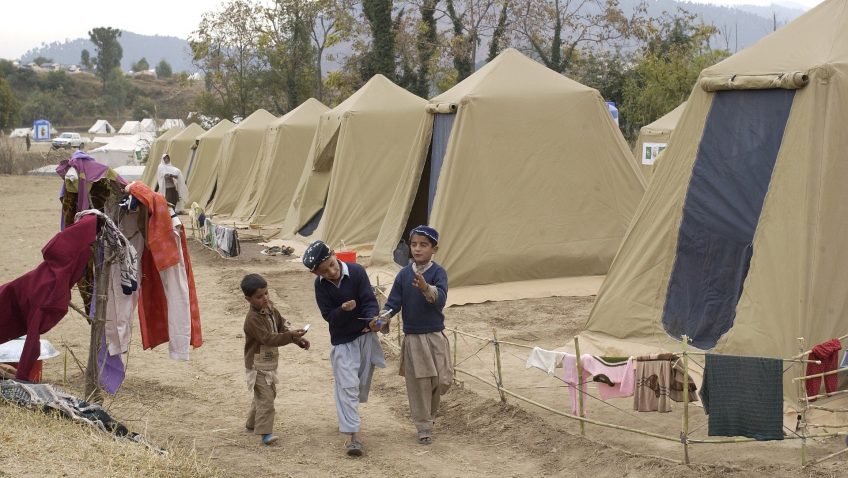Pakistan’s army is one of the largest armies in the world. Historically, the reason behind the creation of armies was to protect society from any external threats. With the change in the war dynamics and the nature of the threats to any state, the responsibilities of the armies have also expanded. Pakistan has been mired in internal as well as external challenges enhancing the army’s responsibilities. Whenever there is a disaster, the army is called, for the traditional and non-traditional security threats army is looked at. But with such vast responsibilities, it looks like the army wold has asked for a huge proportion of the country’s budget. But, this is not the case. Pakistan army under current COAS General Qamar Javed Bajwa has not just asked for a limited budget but contributed also through other means to protect the economy.
Over the past fifty years, looking at the enfeebling economy, the army’s budget has also decreased. In the 1970s army’s budget was 6.5% of the total GDP, compared to 2.54% in 2021. According to Stockholm International Peace Research Institute, Pakistan spends much lesser than other countries, despite being 7th largest army in the world. Oman spends 12%, Lebanon 10.5%, Saudi Arabia 8%, Kuwait 7.1%, Algeria 6.7%, Iraq 5.8%, UAE 5.6%, Azerbaijan 4%, Turkey 2.77%, Morocco 5.3%, Israel 5.2%, Jordan 4.9%. Armenia 4.8%, Mali 4.5%, Qatar 4.4%, Russia 3.9%, US 3.4%, and India 3.1%. Pakistan spends much lesser on its soldiers compared to the other countries, which ultimately spares room for the economy to allocate the budget for other developmental projects. In the fiscal year 2020/21, the Pakistan army contributed PKR 28bn to the country’s economy through direct tax.
Also read: Walking in The Narrow Corridor: Pakistan Government and the Balochistan Problem
Besides, the Pakistan army is also contributing to welfare as well as creating job opportunities. Fauji Foundation is perceived as a business venture of the Pakistan army. But the reality is something else. Fauji Foundation is a charitable trust working under the Charitable Endowment Act of 1890 whose more than 73% of its income is directly spent on Shuhada, war wounded, and disabled soldiers. In 2021, FF’s contribution to welfare activities has reached RS 1 billion per annum. Moreover, Fauji Group is among the highest taxpayers. The number of civilian employees in FG is more than military workers. There are 22,652 civilians and around 4000 ex-servicemen in Fauji Foundation. DHAs are also a self-sustaining initiative that not only supports society but also provides economic opportunities. Special Communication Organization (SCO) is another organization that has generated 4612 jobs in the communication sector. It is a telecom network in AJ&K and GB. Besides these organizations, FWO, NLC, and ITS are other organizations and systems that help the country in infrastructural development and also in bringing social stability through economic and job opportunities.
Pakistan army has played important role in resolving international disputes that could cost Pakistan badly through economic penalties. Karkey Karadeniz Electrik Uterim, Rekodiq, and FATF are some important issues. Karkey Karadeni Electrik Uterim, a Turkish company was involved in corruption in Turkey, Switzerland, Lebanon, Panama, and Dubai. When the evidence was produced in front of the International Centre for Settlement of Investment Disputes Tribunal, Pakistan was fined $1.2 bn. This could shrink Pakistan’s economy by 2%. Pakistan army resolved the disputes through negotiations. In the Rekodiq case, Pakistan was fined $11 bn, but negotiations with all the relevant stakeholders helped in resolving the dispute. Several rounds of negotiations were held to resolve the matter. After the resolution, the project brought economic and social opportunities for the people of Baluchistan. The government of Pakistan will pay a revenue stream to the Government of Baluchistan. It will create 8000 job opportunities for skilled labor while for the non-skilled labor, the project will create 12000 jobs. Pakistan has been relieved from the FATF Grey List. This has only become possible because of efforts from the political and military institutions. Counter-terrorism was the most specific concern of the FATF authorities, and the world knows the contributions the Pakistan army has made in countering extremist and terrorist factions in the country.
Last but not the least, under the current COAS, the government has been paying a lot of attention to the security of CPEC. Baluchistan is the most destabilized province due to extremist organizations. It enhances the army’s responsibilities to provide extra protection to foreign workers and developmental projects. Because these extremist factions have been targeting foreign nationals and developmental projects. So, 2 exclusive SSD units have been raised for CPEC security and also a comprehensive security mechanism has been evolved for protecting foreign nationals.
It shows how Pakistan’s army has evolved effectively among the world’s best armies with the minimum budget required for such initiatives.


